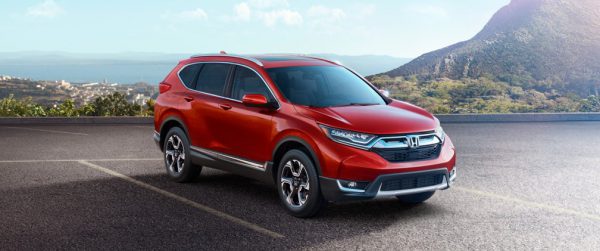SUVs, or sports utility vehicles, are what’s hot – and what’s been hot for some time now when it comes to the auto market. In fact, according to a December 2017 report on auto sales in the Wall Street Journal, all SUVs and crossover SUVs are up about 6.5 percent in sales compared to last year at this time. This is led by the compact SUV category, which is up about 4.5 percent, followed by the luxury SUV category, which is up 3.4 percent from 2016. As you can see, sales are still trending up among this vehicle class.
Yes, people love their SUVs – and Texas drivers are no exception. While Texans might be best associated with driving pickup trucks, the numbers don’t lie when it comes to the increased number of SUVs on the road in the Lonestar State and elsewhere throughout the country today. Vehicles like the Honda CR-V, Chevy Tahoe, Toyota Highlander and Jeep Grand Cherokee continue to top the charts, especially when you consider that these vehicles are made much more affordable and practical with leasing options.
The Benefits of Leasing an SUV
Buying a vehicle is an investment. That is, there’s a lot of incentive to take great care of it so that you’re driving it for many years after you’ve made the last payment on the auto loan. For some Texas consumers, buying is ideal and can present a cost-savings for several years after you’ve paid the vehicle off. For others, buying can be a hassle. Not only do older cars become more expensive to maintain, but with how fast technology is changing, you’re going to be driving an outdated vehicle before long.
That’s where leasing comes in, especially when it comes to SUVs. With leasing, you’re always making a car payment for as long as you have the vehicle, but there are lots of benefits to going this route:
• New cars every 2-3 years: Most leases don’t last for longer than three years, which means that you’re driving a brand-new vehicle with each new lease.
• Latest technology: Technology in the automotive industry is always changing, and by leasing, you’ll be privy to the latest and greatest every 2-3 years.
• Less maintenance: Newer cars require less maintenance than older ones, and chances are that any lease you’re driving isn’t going to come due for any major suggested maintenance (i.e., brakes, transmission flushes, new tires, etc.) until well after you’re done with it and have turned it back into the dealer. There’s a good chance that the only thing you’ll need to worry about with your lease is a regular oil change and tire rotation.
• Under warranty: Most vehicles these days come with 36-month full warranties, so if something should go wrong with your lease, the only thing you’ll be out is the minor inconvenience of taking it into the repair shop.
SUVs in Texas: A Convenient Choice
SUVs provide a little bit of the best of both worlds in Texas in that they offer good fuel economy and still allow for plenty of storage room. Plus, they’re easy to handle and fun to drive. You don’t need to take a TX defensive driving course to understand that. What’s more is that lease payments are often significantly lower than auto loan payments, which can make it more convenient for drivers to afford higher-end SUV models.
As you can see, for many, it makes sense to lease. To clear any recent TX traffic tickets, make sure to take advantage of the best online defensive driving Texas programs today.

 Live Chat
Live Chat






